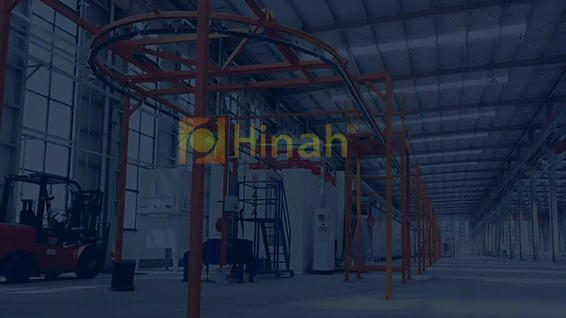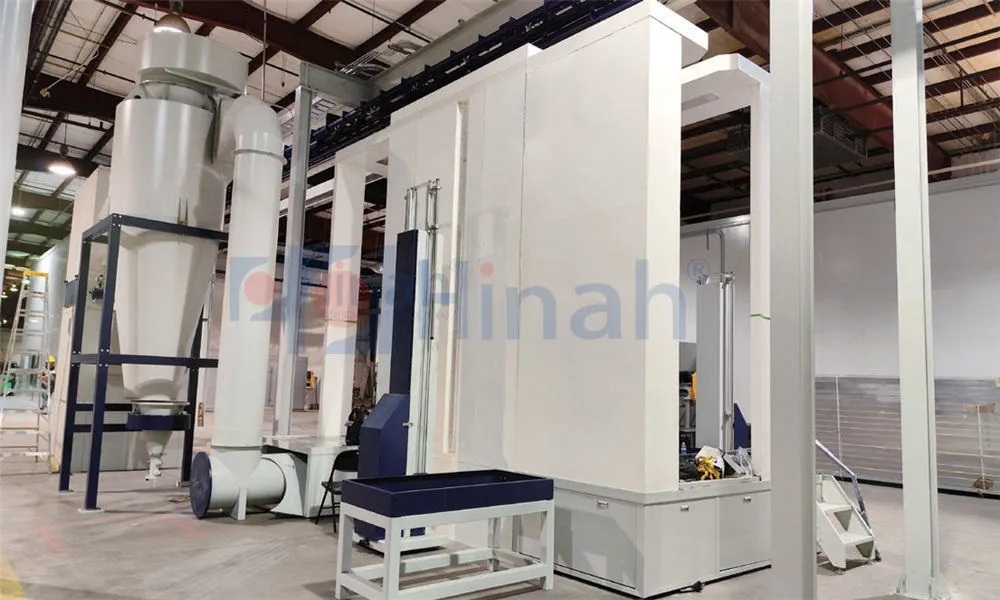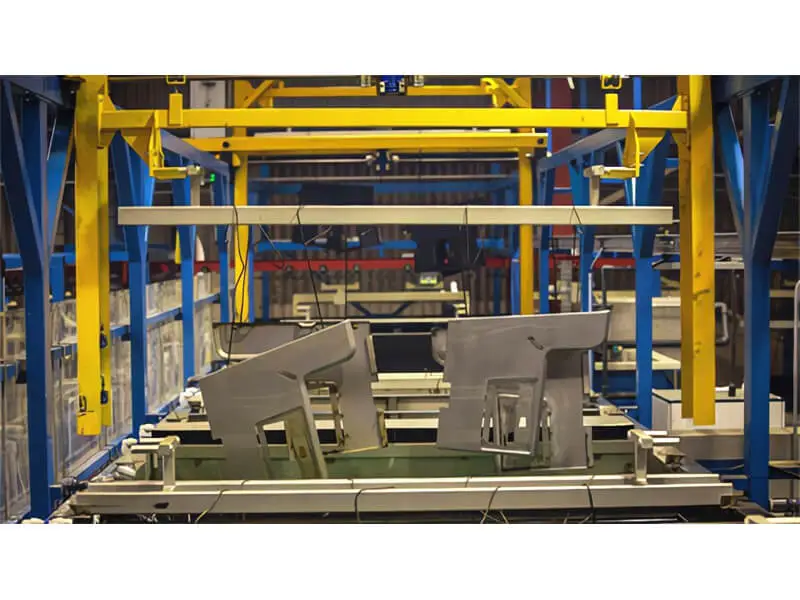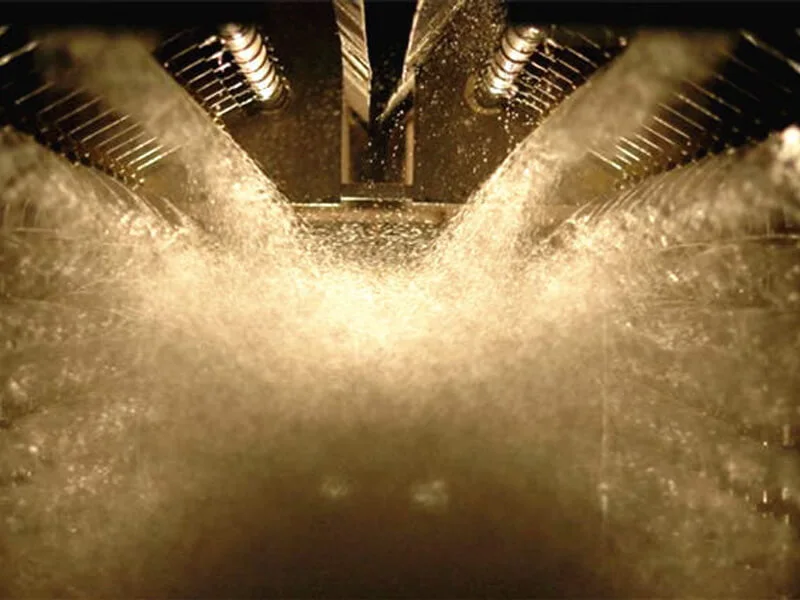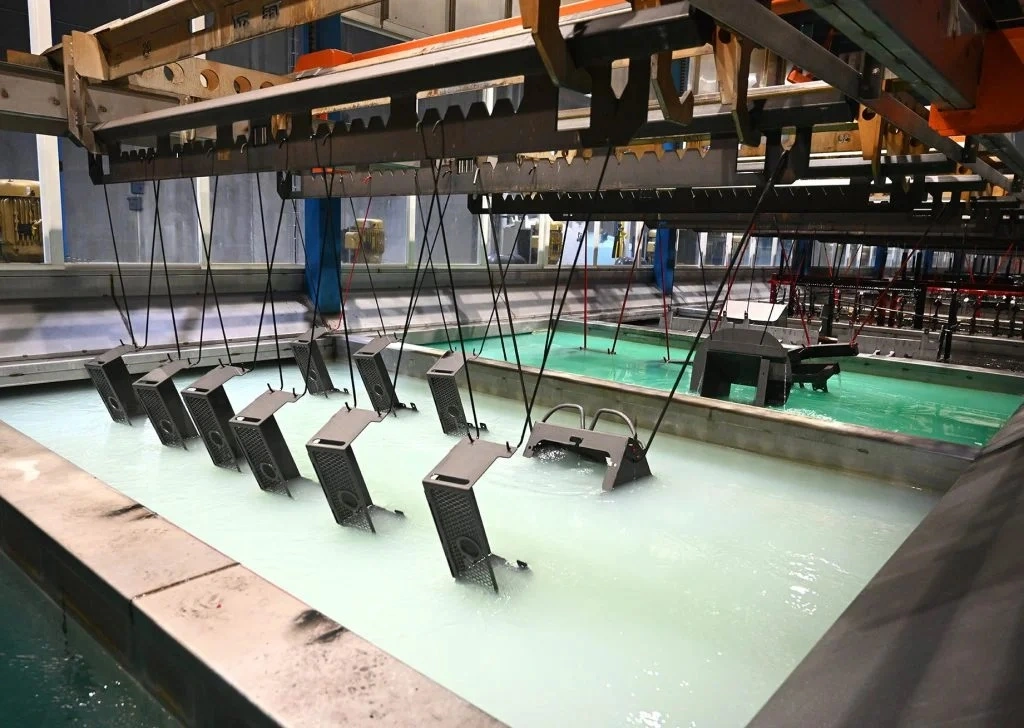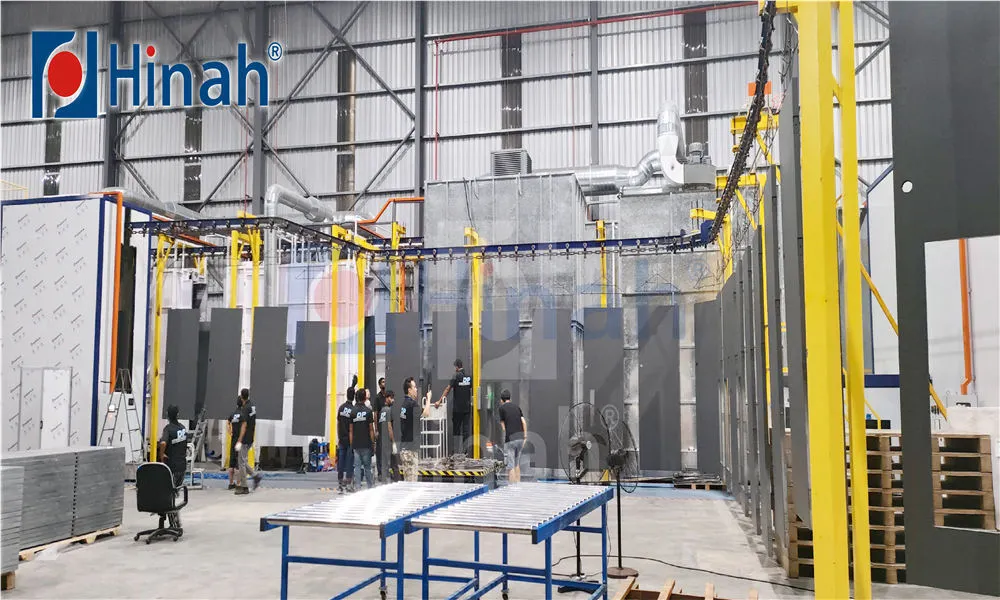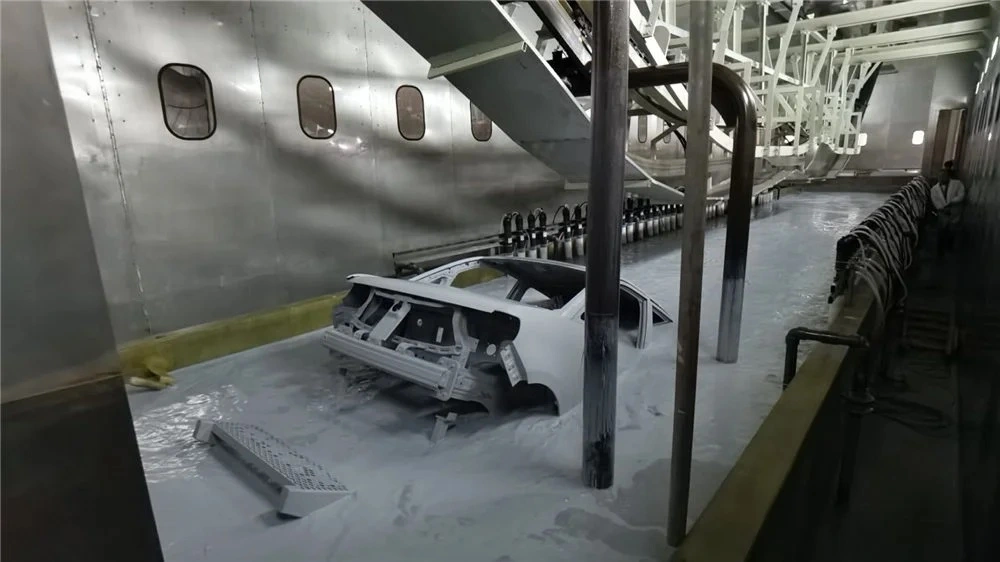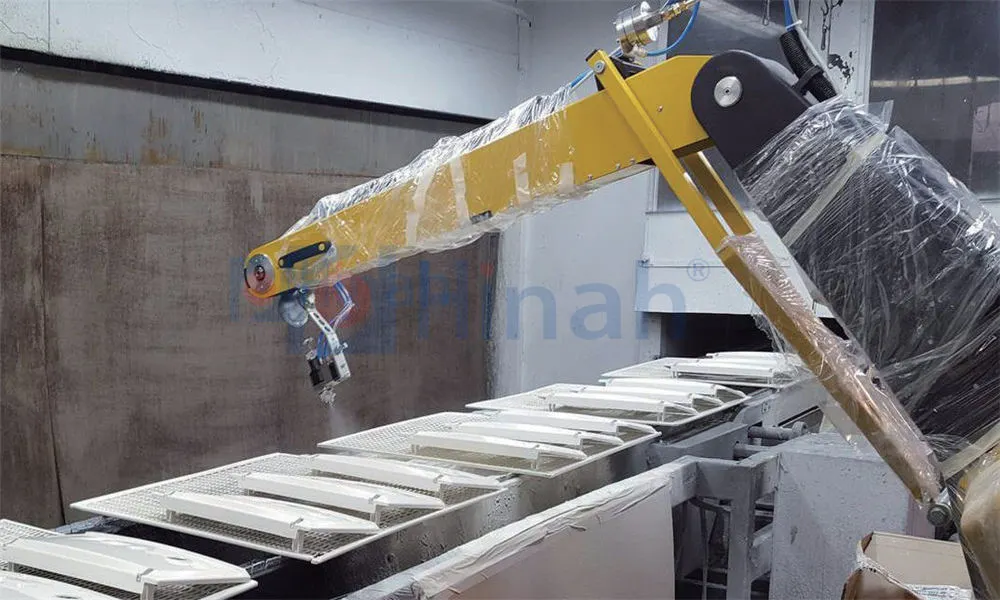If you're in the manufacturing or finishing industry, you've likely heard about the game-changing benefits of an electric powder coating oven. Whether you're a small workshop or a large-scale operation, selecting the right equipment can make all the difference in efficiency, quality, and cost-effectiveness. In this comprehensive guide, we'll walk you through everything you need to know about electric powder coating ovens, including key considerations, customization options, and why HANNA stands out as a trusted brand in the international powder coating arena. By the end, you'll be equipped to make an informed decision that boosts your productivity and meets your specific needs.
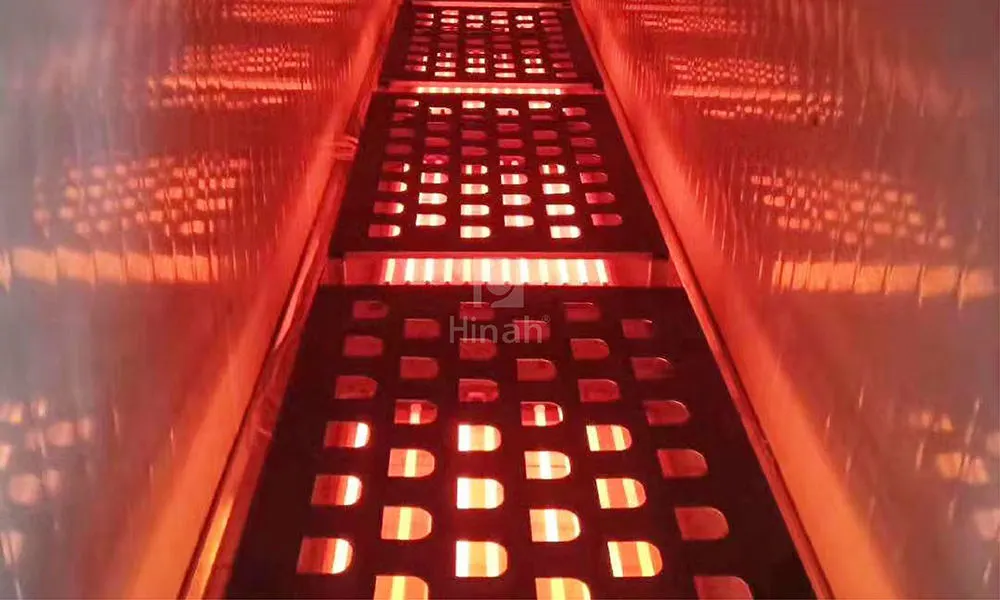
An electric powder coating oven is a specialized heating system used to cure powder-coated surfaces, transforming them into durable, high-quality finishes. Unlike traditional methods that rely on solvents or liquid paints, this oven uses electric heating elements to generate consistent, controlled heat. The process involves applying a dry powder to a substrate—often metal—and then baking it in the oven to melt and fuse the coating into a smooth, even layer. This method is widely favored for its environmental benefits, as it produces minimal volatile organic compounds (VOCs) and reduces waste. In industries ranging from automotive to furniture manufacturing, the electric powder coating oven has become a staple for achieving resilient and aesthetically pleasing results.
One of the reasons for its popularity is the precision it offers. With adjustable temperature settings and uniform heat distribution, an electric powder coating oven ensures that every part receives the same level of curing, minimizing defects like orange peel or uneven gloss. As we delve deeper, you'll see how this equipment aligns with modern sustainability goals and operational efficiency.
Key Benefits of Using an Electric Powder Coating Oven
Why should your business invest in an electric powder coating oven? The advantages are numerous, and they extend beyond just the finishing quality. First, energy efficiency is a major perk. Electric models consume less power compared to gas-fired alternatives, especially in regions where electricity is affordable or sourced from renewables. This not only cuts operational costs but also supports green initiatives, a growing concern in the global powder coating industry.
Second, consistency and control are unparalleled. Electric powder coating ovens allow for precise temperature management, which is crucial for curing different types of powders, such as epoxies or polyesters. This leads to fewer rejects and higher customer satisfaction. Additionally, these ovens are known for their low maintenance requirements. Without combustion components, there's less wear and tear, reducing downtime and repair expenses.
Lastly, safety is enhanced. Electric systems eliminate risks associated with open flames or gas leaks, making them ideal for facilities with strict safety protocols. Whether you're handling small batches or high-volume production, an electric powder coating oven can scale to meet demand while maintaining top-notch performance.
Factors to Consider When Choosing an Electric Powder Coating Oven
Selecting the right electric powder coating oven isn't a one-size-fits-all process. It requires careful evaluation of your specific operational needs. Start by assessing the size and capacity. How much space do you have? What are your production volumes? A compact electric powder coating oven might suffice for a small shop, while larger operations may need a conveyorized system for continuous processing.
Next, consider temperature range and control. Most electric powder coating ovens operate between 150°C to 250°C (302°F to 482°F), but your requirements might vary based on the materials you coat. Look for models with digital controllers and programmable settings to ensure repeatability. Airflow and ventilation are also critical; proper circulation prevents hot spots and ensures even curing.
Don't overlook customization options. Many suppliers, including HANNA, offer tailored solutions. For instance, you might need a custom electric powder coating oven with specific insulation or racking systems to handle unique part geometries. Budget is another factor—while electric models can have higher upfront costs, their long-term savings often justify the investment. By weighing these elements, you can find an electric powder coating oven that aligns with your business goals.
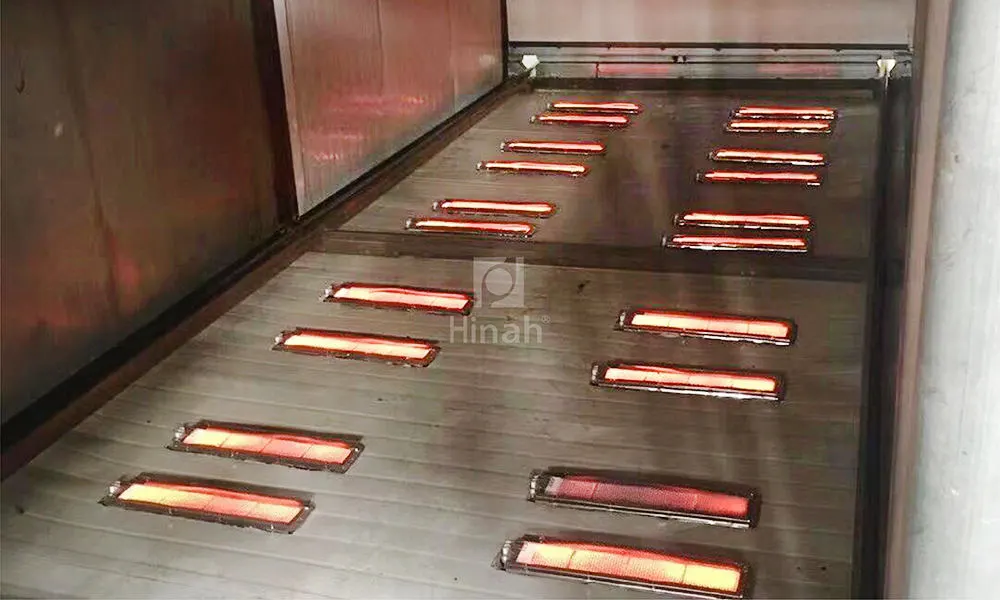
Customization Options for Electric Powder Coating Ovens
In today's competitive market, off-the-shelf solutions don't always cut it. That's where customization comes in. A custom electric powder coating oven can be designed to fit your exact specifications, from dimensions to advanced features. For example, HANNA specializes in building ovens with modular components, allowing for easy expansion as your business grows. You can opt for additional heating zones, specialized racks, or integrated cooling systems to streamline your workflow.
Another popular customization is the inclusion of energy recovery systems, which reuse waste heat to improve efficiency. This is particularly valuable in high-throughput environments where every kilowatt counts. Moreover, custom electric powder coating ovens can be tailored for specific industries, such as aerospace or architectural coatings, where precision and compliance with international standards are non-negotiable.
When exploring customization, partner with a reputable brand like HANNA to ensure quality. Their expertise in the powder coating sector means you get a solution that not only meets but exceeds expectations, boosting your ROI and operational flexibility.
Applications in the International Powder Coating Industry
The electric powder coating oven plays a vital role across various sectors globally. In the automotive industry, it's used for coating wheels, frames, and engine parts, providing corrosion resistance and a sleek finish. Similarly, in consumer goods, items like appliances and outdoor furniture rely on these ovens for durable, colorful coatings that withstand harsh conditions.
In industrial settings, the electric powder coating oven is essential for machinery, electrical enclosures, and structural components. Its ability to handle diverse materials—from aluminum to steel—makes it a versatile choice. Internationally, regions like Europe and North America have seen a surge in adoption due to stringent environmental regulations favoring low-emission technologies. Meanwhile, emerging markets in Asia are embracing electric powder coating ovens to enhance product quality and compete on a global scale.
By understanding these applications, you can see how an electric powder coating oven fits into broader trends, such as the shift toward sustainable manufacturing and Industry 4.0 integration.
Why HANNA is Your Go-To Brand for Electric Powder Coating Ovens
When it comes to reliability and innovation, HANNA stands out in the crowded market of powder coating equipment. With years of experience, HANNA has built a reputation for delivering high-performance electric powder coating ovens that cater to diverse client needs. Their products are engineered with cutting-edge technology, ensuring energy efficiency and consistent results. For instance, HANNA's electric powder coating ovens feature advanced insulation and smart controls, which reduce heat loss and optimize curing cycles.
What sets HANNA apart is their commitment to customization. Whether you need a small benchtop unit or a large industrial oven, they work closely with you to design a custom electric powder coating oven that addresses your unique challenges. Plus, their global support network means you get timely service and maintenance, minimizing disruptions to your operations.
By choosing HANNA, you're not just buying an oven—you're investing in a partnership that prioritizes quality and long-term value. Many businesses in the international powder coating community trust HANNA for their robust designs and customer-centric approach.
Investing in an electric powder coating oven is a smart move for any business looking to improve finish quality, reduce environmental impact, and boost efficiency. From understanding the basics to exploring customization, this guide has covered the essentials to help you make an informed choice. Remember, factors like size, temperature control, and brand reliability—such as that offered by HANNA—can significantly influence your success. As the powder coating industry evolves, staying ahead with the right equipment will position your business for growth. If you're ready to take the next step, consider reaching out to experts who can provide tailored advice and solutions.
Frequently Asked Questions (FAQ)
Q1: What is the average lifespan of an electric powder coating oven?
A1: The lifespan of an electric powder coating oven typically ranges from 10 to 20 years, depending on usage, maintenance, and build quality. Regular cleaning and servicing, especially for custom electric powder coating ovens from brands like HANNA, can extend this period significantly.
Q2: How energy-efficient is an electric powder coating oven compared to gas models?
A2: Electric powder coating ovens are generally more energy-efficient in terms of heat conversion, as they lose less energy to exhaust. They can reduce operational costs by up to 30% in some cases, making them a preferred choice for environmentally conscious businesses in the powder coating industry.
Q3: Can an electric powder coating oven handle high-volume production?
A3: Yes, many electric powder coating ovens are designed for high-volume production, especially with conveyor systems and multiple zones. Brands like HANNA offer scalable options, including custom electric powder coating ovens, to meet demanding schedules without compromising on quality.
Q4: What safety features should I look for in an electric powder coating oven?
A4: Key safety features include over-temperature protection, emergency stop buttons, and proper insulation to prevent burns. For added security, opt for models with automated shutdown systems and compliance with international standards, which are standard in HANNA's electric powder coating ovens.
Q5: Are there customization options for specific powder types or part sizes?
A5: Absolutely. Custom electric powder coating ovens can be tailored for specific powder chemistries or part dimensions. For example, HANNA provides options like adjustable racks, specialized airflow designs, and temperature profiles to ensure optimal curing for unique applications in the powder coating field.


